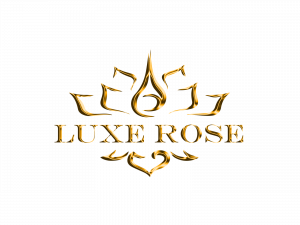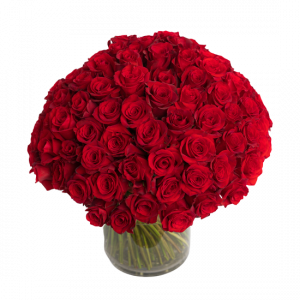Luxe Rose Launches The Reserve Rose Collection
Luxe Rose Launches The Reserve Rose Collection
NEW YORK, UNITED STATES, November 3, 2021 /EINPresswire.com/ -- Most when they see a rose bend down to sniff. If you’re like me, you probably never really thought much about rose fragrance except if it’s missing, faint, or how nice it is. Just what gives a roses its wonderful fragrance, and how this is used, is complex and fascinating.
Roses have been around and are documented longer than most of our garden plants. The earliest record of them seems to be rose leaves found in the Colorado Rockies, dating back 35 to 32 million years to the Paleolithic era. First mention of them, and their appearance in artistic motifs, was in Asia about 3000BC, with mention elsewhere about 2300 BC.
The fragrance of roses was valued by the Romans, used to scent rooms and after bathing. Cleopatra supposedly filled a room over a foot deep with rose petals while wooing Marc Anthony. The two main roses used in this era were the Damask and Gallica types.
Luxe roses are harvested two weeks later than your average roses, enabling them to retain more nutrients and, as a result.
Their roses have longer stems, larger and more regal flower heads, and a longer vase life. Their flower bouquets are made with only the freshest flowers and delivered to you by white glove delivery service. Sending fresh flowers with Luxe Rose is sure to be
Rose oil, often seen as “attar of roses” or “rose otto”, was probably first made in 10th century Persia. This was the first import of roses to Europe, leading to the subsequent growing of the plants there.
Prior to the Victorian era of the late 1800’s, fragrance in flowers was used for functions such as medicinally or to hide odors. This period saw the use of flowers in gardens and homes merely for their pleasing fragrance. This era also saw the first attempts to define and classify scents. Yet, it wasn’t until later in the last century that the seven main rose scents were accepted, and the responsible chemicals identified.
The seven main rose scents are rose (or damask), nasturtium, orris (which is similar to violets), violets, apple, clove, and lemon (the fruit, not the blossoms). Orris is a compound used to fix or preserve odors. Then there are 26 other less common odors you may smell in roses. These include such diverse ones as honeysuckle, moss, hyacinth, honey, wine, marigold, peppers, parsley, and fruits such as raspberry.
Scent in roses, depending on which one, comes from one or more of over 300 chemical compounds. Yet in rose oil, only four make up less than one percent but produce over 90 percent of the fragrance.
If you think rose scent is getting complicated, consider how we smell. These chemicals evaporate and our nose receptors pick up the volatile compounds. Each of these evaporate at a different rate, which means that rose fragrance will change over time. For example, clove evaporates 36 times more slowly than citrus, so once you pick up a citrus scent it can disappear with the clove scent appearing later.
Scent not only changes over time, but with time of day. Early morning is when scents are strongest, the oils most powerful, and so when roses are harvested for rose oil. Rose scent may be more powerful with the first blooms of summer. Rose scent even can change from outdoors to indoors. Just the cutting can change the chemical releases that we smell, so a rose not very fragrant outdoors may be quite scented once in a vase inside.
The other fact to keep in mind is that scent in flowers, including roses, is not meant by nature for us but rather for the pollinators of the roses. Scents in flowers are signals to those pollinators such as some bees to come visit the flowers, and are often smelled before they see the flowers. Flowers release scent when they are ready to be pollinated, which in roses often translates to a more powerful scent when flowers are half open.
In general, roses with the best scents are darker colors, have more petals, and have thick or velvety petals. Red and pink roses often smell like what we term “rose”. White and yellows often smell of violets, nasturtium, and lemon. Orange roses often smell of fruits, violets, nasturtium, and clove.
Most true rose oil comes from Bulgaria, Morocco, Iran, Turkey, and more recently from China. The oil is extracted from the petals either with alcohol or through distillation. The true oil is very expensive as it takes about 250 pounds of petals to make a mere ounce of oil. For this reason, rose oil is often diluted with similarly scented oils such as geraniol from geraniums, or even the synthetic phenylethanol. While fine for fragrance uses, and excellent for making them affordable, if using rose oil medicinally you need the true oil and not a product marked “fragrance”.
Rose oil has been used medicinally from the ancient Chinese, through medieval times, even through the present. One use is for skincare, especially for dry, sensitive, and aging skin. Another use is as a mild sedative, antidepressant, and for stress conditions. Rose oil (or tea from the petals) may help digestion, stomach ailments, or sore throat. Vitamins A, C, and P come from roses. Rose scent even may aid memory. In a German study, people spritzed with rose scent during a memory exercise, then again while sleeping, had 13 percent better recall.
About Luxe Rose:
Luxe Rose is one-of-a-kind florist that provides a unique flower delivery service. We are a high-end gifting, offering innovation with its signature design elements and authentic luxury experience. With the Luxe Rose collection roses the are hand-picked in the Andes Mountains of Ecuador; the closest place in the world to the sun, and 3,000 meters above sea level. The hot sunny days and cool nights make for optimal rose-growth, and we have spent years building strong relationships with the rose farmers to enable us to source the highest-quality roses in the world.
Meagan Bloom
Luxe Rose
+1 877-997-6737
email us here
Visit us on social media:
Facebook
Twitter
LinkedIn
The Luxe Rose Difference


